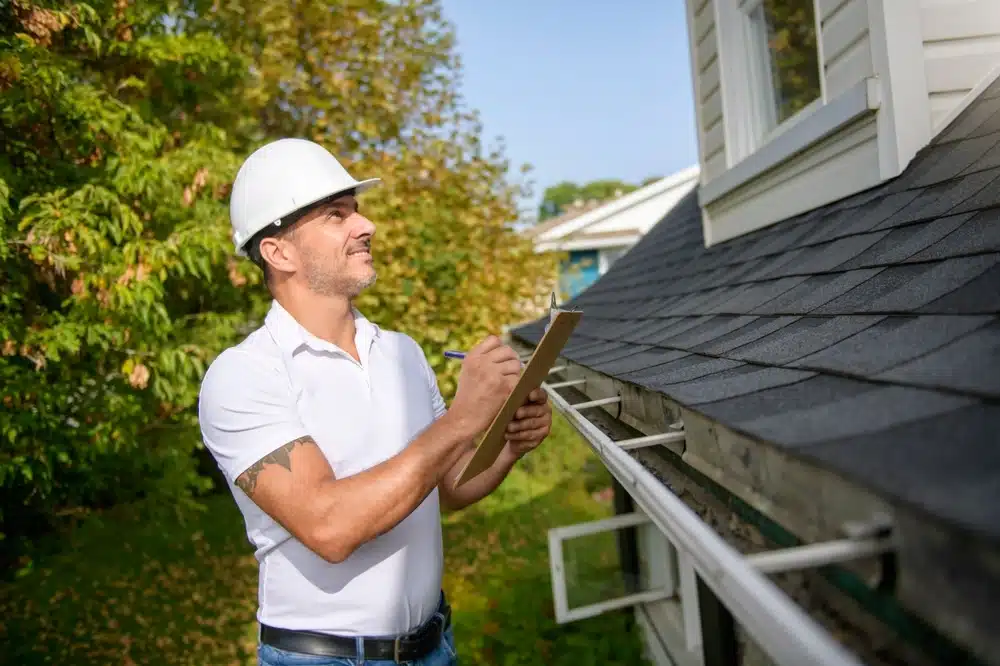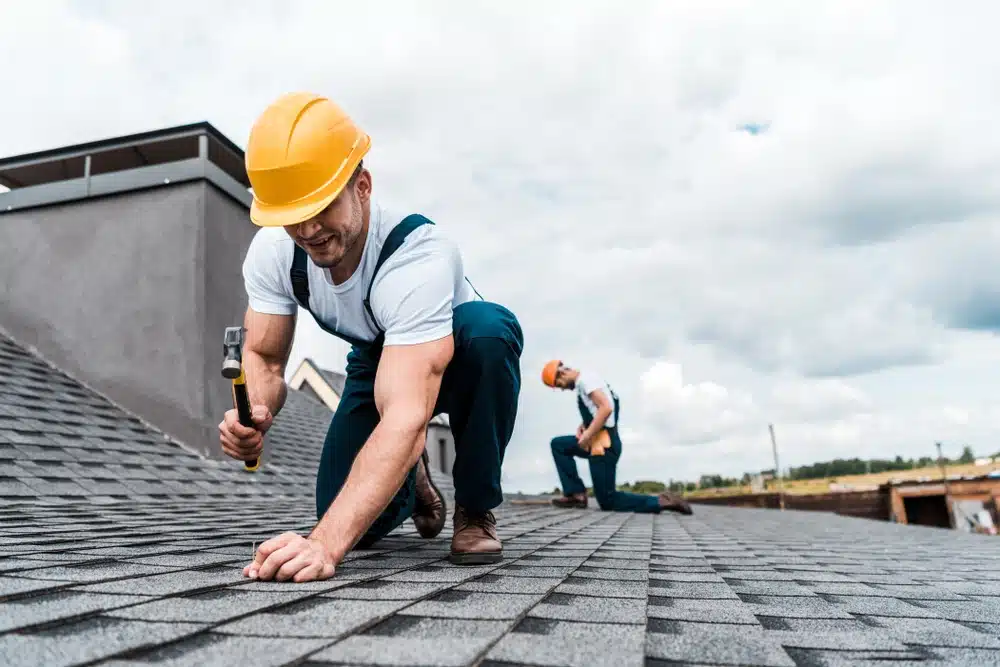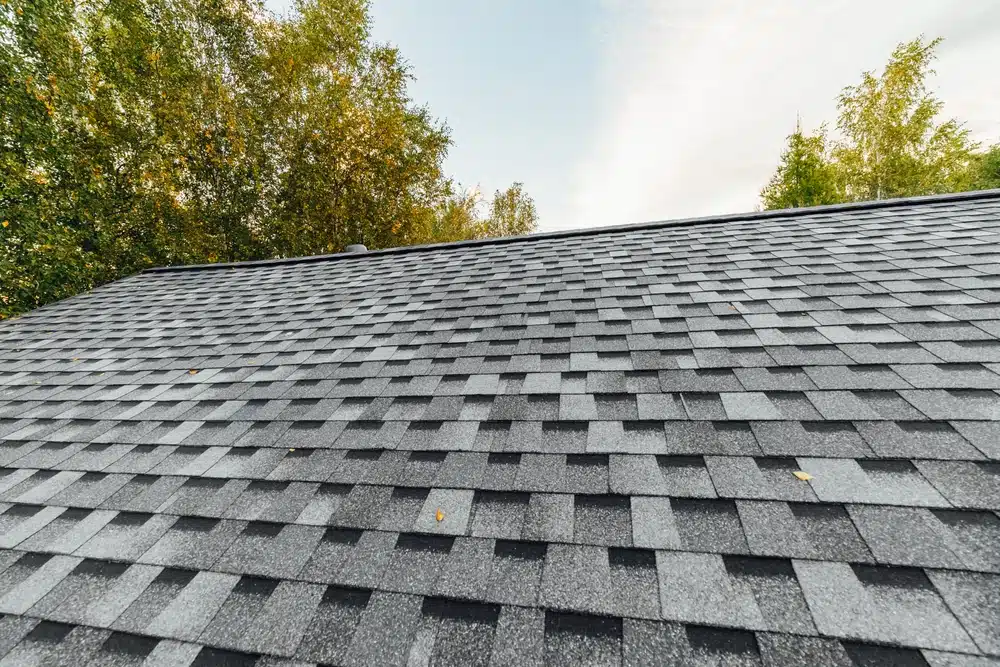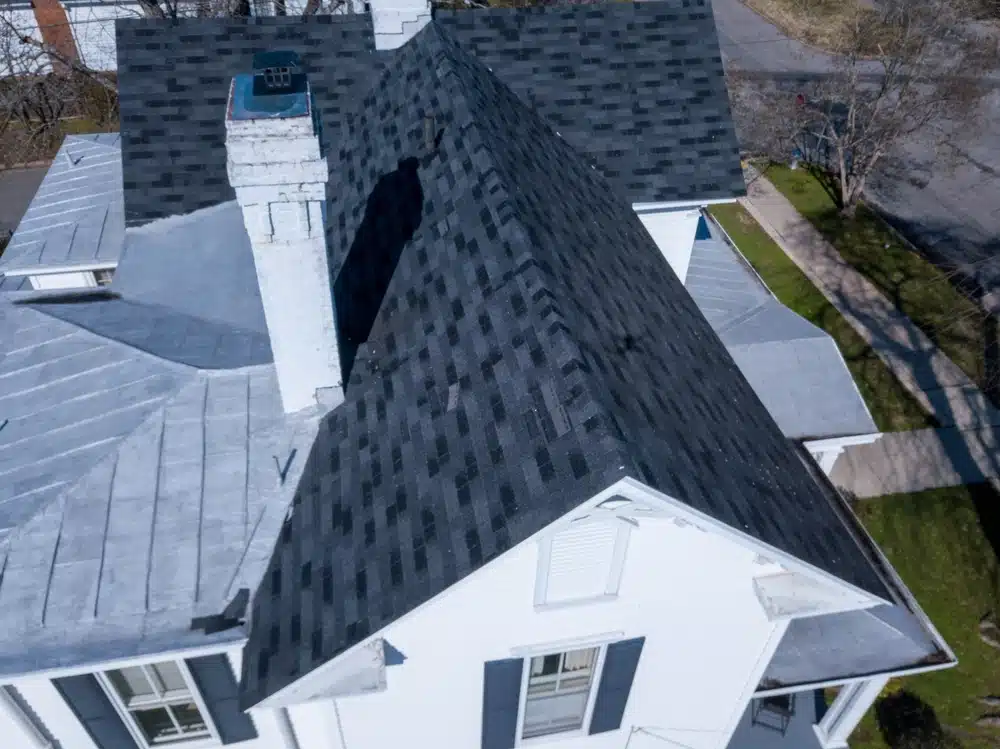The Benefits of Regular Roof Inspections for Homeowners
Your roof is your home’s first line of defense against the elements. Regular roof inspections are crucial to maintaining this protective barrier and ensuring the safety and longevity of your home. This blog explores the importance of roof inspections, the key reasons for their necessity, and some interesting facts about roof maintenance.
Table of Contents
- Understanding Roof Inspection
- Key Reasons Why Roof Inspections Are Essential
- When to Schedule Roof Inspections
- What to Expect During a Roof Inspection
- Interesting Facts About Roof Inspection
- Choosing the Right Roof Inspection Service
- Protect Your Home with Regular Roof Inspections

Understanding Roof Inspection
A roof inspection involves a thorough examination of your roof’s condition, including its shingles, flashing, gutters, and other components. Professional roof inspectors use specialized tools and techniques to identify any issues that may not be visible to the untrained eye. A comprehensive roof inspection includes checking for leaks, damage, and wear and tear, ensuring that all parts of the roof are functioning as they should.
The Inspection Process: During a roof inspection, professionals will look for a variety of issues. They will check for missing, cracked, or curling shingles, which can indicate that the roof is nearing the end of its life. They will also inspect the flashing around chimneys, vents, and other roof penetrations to ensure that it is intact and properly sealed. Gutters and downspouts are examined to ensure they are clear of debris and functioning correctly. The inspector will also check for signs of water damage or leaks in the attic and ceilings.
Tools and Techniques: Professional roof inspectors use a range of tools to conduct their assessments. These can include moisture meters, infrared cameras, and drones. Moisture meters detect areas of the roof that are retaining water, which can lead to mold and rot if not addressed. Infrared cameras can identify heat loss, indicating potential issues with insulation or ventilation. Drones provide a bird’s eye view of the roof, allowing inspectors to see areas that are difficult to access safely.
Key Reasons Why Roof Inspections Are Essential
Early Detection of Problems: Regular inspections can identify minor issues before they become major, costly repairs. Catching problems early, such as small leaks or damaged shingles, can prevent extensive damage and save you money in the long run. For instance, a minor leak might seem insignificant but can lead to significant water damage, mold growth, and structural issues if left unchecked.
Extend Roof Lifespan: Regular maintenance and timely repairs can significantly extend the life of your roof. Inspections help ensure that your roof remains in optimal condition, delaying the need for a costly replacement. With consistent care, a well-maintained roof can exceed its expected lifespan, providing reliable protection for many years. This means that the investment in regular inspections can pay off by delaying the high costs associated with a full roof replacement.
Protect Your Investment: Your home is one of your most significant investments. A well-maintained roof protects the structural integrity of your home, safeguarding your investment and preventing potential damage to the interior. Avoiding water damage, mold growth, and structural issues can save thousands in repair costs. By ensuring that your roof is in good condition, you are also protecting the overall value of your property.
Improve Energy Efficiency: Roof inspections can identify areas where insulation or ventilation may be lacking. Addressing these issues can improve your home’s energy efficiency, reducing heating and cooling costs. Proper insulation and ventilation help maintain a comfortable indoor temperature, reducing the strain on your HVAC system. This not only saves money on energy bills but also contributes to a more sustainable and environmentally friendly home.
Ensure Safety: A damaged roof can pose safety hazards, such as leaks that lead to mold growth or structural weaknesses that could result in a collapse. Regular inspections help ensure that your roof is safe and secure, protecting your family from potential dangers. For example, a roof with weakened supports or significant damage could be at risk of collapsing under the weight of heavy rain or debris, posing a serious safety risk.

When to Schedule Roof Inspections
It’s important to schedule roof inspections at key times to ensure your roof remains in good condition:
Annually: A yearly inspection can catch small problems before they escalate. Regular inspections help to identify and address issues that might have developed over the year, preventing minor problems from becoming major repairs.
After Severe Weather: Inspections after storms, heavy rainfall, or strong winds can identify and address damage caused by harsh weather conditions. Severe weather can cause a range of problems, from missing shingles to structural damage, and it’s important to address these issues promptly to prevent further damage.
Before Buying or Selling a Home: A roof inspection before a real estate transaction can provide peace of mind to both buyers and sellers, ensuring the roof is in good condition. For buyers, this can prevent unexpected repair costs after purchasing a home. For sellers, a roof inspection can be a selling point, demonstrating that the home is well-maintained and in good condition.
What to Expect During a Roof Inspection
During a professional roof inspection, you can expect the inspector to:
Check for Leaks and Water Damage: Identify areas where water may be entering and causing damage. Inspect the attic and ceilings for water stains or signs of mold. This step is crucial in preventing mold growth and structural damage caused by prolonged water exposure.
Inspect Shingles and Flashing: Look for signs of wear and tear, such as curling, cracking, or missing shingles. Check the flashing around chimneys and vents for gaps or damage. Damaged shingles and flashing can allow water to penetrate the roof, leading to leaks and water damage.
Examine Gutters and Downspouts: Ensure gutters and downspouts are clear of debris and functioning properly to direct water away from the roof and foundation. Blocked gutters can cause water to back up and damage the roof, while improperly functioning downspouts can lead to foundation issues.
Assess Structural Integrity: Evaluate the overall condition of the roof’s structure, including the attic, to ensure there are no signs of sagging or damage. Structural issues can compromise the roof’s ability to protect your home, leading to potential safety hazards.
Review Insulation and Ventilation: Check that insulation is adequate and ventilation systems are working correctly to prevent heat buildup and moisture problems. Proper insulation and ventilation are essential for maintaining energy efficiency and preventing issues like ice dams and mold growth.

Interesting Facts About Roof Inspection
Drone Technology: Some roof inspectors use drones to get a comprehensive view of hard-to-reach areas, ensuring a thorough inspection without risking personal safety. Drones can capture high-resolution images and videos of the roof, providing detailed information about its condition.
Thermal Imaging: Advanced roof inspections may include thermal imaging to detect hidden leaks and insulation issues that are not visible to the naked eye. Thermal imaging can identify areas where heat is escaping or moisture is accumulating, helping to pinpoint problems before they become visible.
Roof Lifespan: The average lifespan of a roof is 20-25 years, but regular inspections and maintenance can extend this significantly. By addressing issues promptly and keeping the roof in good condition, homeowners can maximize the lifespan of their roof.
Insurance Benefits: Regular roof inspections can sometimes reduce home insurance premiums, as a well-maintained roof poses less risk to the insurer. Insurance companies may offer discounts to homeowners who can demonstrate that their roof is in good condition and regularly inspected.
Environmental Impact: Identifying and repairing small issues can prevent wasteful roof replacements, making regular inspections a more environmentally friendly option. By maintaining the existing roof, homeowners can reduce the amount of waste sent to landfills and the resources needed to produce new roofing materials.
Choosing the Right Roof Inspection Service
Selecting a reliable and experienced roof inspection service is crucial. Here are some tips to help you choose the right service:
Check Credentials: Ensure the inspector is licensed, insured, and certified by relevant professional bodies. This ensures that they have the necessary training and expertise to conduct thorough inspections and make accurate assessments.
Look for Reviews and References: Read customer reviews and ask for references to gauge the quality of their service. Reviews and references can provide insight into the inspector’s reliability, professionalism, and quality of work.
Experience Matters: Choose a company with extensive experience in roof inspections and repairs. Experienced inspectors are more likely to identify potential issues and provide effective solutions.
Get a Detailed Report: A good roof inspection service should provide a comprehensive report detailing the condition of your roof and any recommended repairs. The report should include photos and explanations of any issues found, as well as an estimate for any necessary repairs.

Protect Your Home with Regular Roof Inspections
Regular roof inspections are a vital part of home maintenance, offering numerous benefits from early problem detection to improved energy efficiency. By investing in regular inspections, you can extend the lifespan of your roof, protect your home, and ensure the safety of your family. If you’re due for a roof inspection, contact CAN Roof Construction today and let our experts provide a thorough evaluation of your roof’s condition.
Roof inspections are not just a routine task but a proactive measure to ensure your home’s longevity and safety. By catching potential issues early and maintaining your roof’s integrity, you safeguard your investment and provide a secure living environment for your family. For comprehensive and professional roof inspection services, trust CAN Roof Construction to deliver the expertise and care your home deserves. Contact us today to schedule your inspection and take the first step towards a healthier, longer-lasting roof.